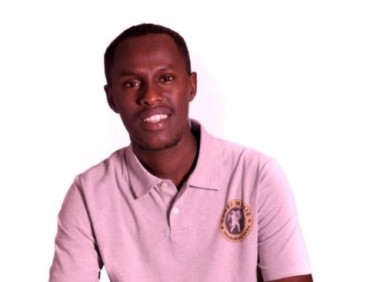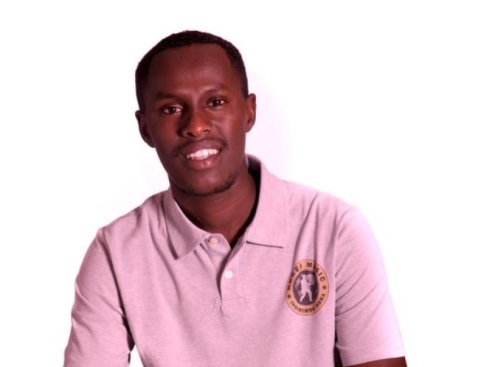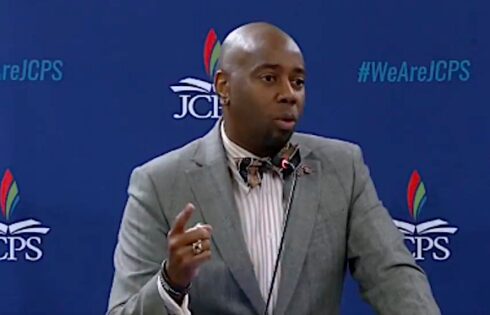
THANKSGIVING THINK WEEK: This is the second in a series of stand-alone essays to be published this week that will offer hard-hitting, thought-provoking words to chew on during this holiday season.
The following is the true story of an African native who escaped the brutal massacre of his tribe.
It was Friday the 13th of August, 2004, around 10 p.m. It had been a really long day, and I laid awake alongside friends on cots crammed into a large hangar, just happy to be off my feet.
Then I heard it. Distant sounds – gunfire, shouting, screams.
The smell of smoke came next.
No, I thought. No, no!
Fear, anger and anxiety gripped me as I reached the camp, one of the first to arrive. I coughed as the stench of burnt flesh filled my nostrils. I didn’t want to look, but I had to.
The massacred bodies of 166 people were strewn about the UN-run refugee camp in Gatumba, Burundi, Africa. Some had been shot in the head; others burned. A few poor souls were just hacked up with a blade.
Another 116 others laid about, wounded, crippled – some crying in anguish, others too injured to make much of a noise at all.
But these weren’t just any people. They were my people. My tribe.
Men. Women. Children. Yes, children. A few you could even call toddlers.
My brain tried to process the scene before me as I helped transport the wounded to hospitals in Bujumbura, the capital city of Burundi. I kept thinking how, just two hours earlier, we had talked and laughed together; my people, my tribe. I only escaped the nightmare because I was in an encampment some half-mile away.
And now, before me, so many of my people laid slaughtered like animals.
And for what?
I continue to ask myself that question today, a decade later. Yet I am no longer in my home country of Africa. I find myself in San Diego, California. A 31-year-old college student. An aspiring writer. One who hopes to tell the world of the injustices to my tribe.
My people do not have writers like those found in Europe and America. We are verbal story tellers, a long and proud tradition. But I must master the art of writing so that I can make a difference for those who remain in Africa and face something far worse than what’s called “discrimination” in America.
They face extinction.
Please, before I get into all that, allow me to tell you how I got from there to here.
I was born in the African village of Bijombo, in the Democratic Republic of Congo. It was a typical poor African village. No medicine, no running water. We lived in huts with floors made out of grass and dirt. A treat for me consisted of boiled cornmeal hardened into the consistency of a rock, with a glass of milk to wash it down.
But we were generally happy. We had our families, we had our village.
Yet the region was filled with strife, and Civil War found us. The entire Central African region was engulfed in a massive civil war throughout much of the 1990s.
As for me and my people, to make a very complicated situation as simple as possible, my tribe is referred to as the Congolese Tutsi of the Banyamulenge tribe.
Generations ago, our ancestors migrated from the neighboring countries of Rwanda, Burundi and Tanzania to a high plateau in what is now known as the Democratic Republic of Congo. But since the 1990s, the Congolese Tutsi have been a pawn in a power struggle between the Democratic Republic of Congo and neighboring countries.
My tribe is Congolese, but the Democratic Republic of Congo government and our fellow citizens ignore our citizenship-by-birth status. They consider us refugees. They want us out. We faced harsh discrimination, we were forced from our homes.
As for Rwanda and Burundi, they have been mostly good to us, taking us in when need be. But there has been civil war, bloodshed, death. All sides are guilty of crimes against humanity. Ugly crimes.
The reason my people were in that UN-run refugee camp in Burundi on that fateful Friday the 13th night of 2004 was because we had fled to escape fierce fighting that had erupted between two Congolese army officers in Bukavu, the capital city of my province, South Kivu. The two officers were Colonel Jules Mutebutsi of my tribe (now in exile in Rwanda) and his boss, Brigadier General Mbuza Mabe.
After the massacre, survivors – including me and my family – were sent to live in another camp, hundreds of miles from where our loved ones were slaughtered and torched. At the end of 2006, the United Nations introduced the process of relocating us to Western countries. In 2007, families relocated to United States, Canada, Netherlands, Sweden, Denmark, and other countries.
On April 18, 2007, I flew from Bujumbura to San Diego. I joined my dad and mom, who came one month before me. One month later my sister arrived. My brother’s family joined us in 2008.
Like other survivors, I did not apply for a visa nor choose to come to San Diego. I found myself in a strange country with an unfamiliar culture. Adjusting to the American system and the English language was a challenge – I still struggle.
In 2008, I started college with the help of a government grant. But it was not always easy. The memory of my parents struggling to pay a $2 monthly school fee will not depart from my mind. In 2011, I graduated from San Diego Mesa College with an associate degree in chemistry.
In October of last year, I was hired at Point Loma Nazarene University as a groundskeeper. More recently I began my junior year here, majoring in writing. It is my pleasure to develop my talent. My ambition is to become the voice of my people.
Burundian rebel leaders, Agathon Rwasa and Pasteur Habimana, who claimed responsibility for the 2004 attack against my people, remain in power today in Burundi. Pasteur Habimana works for the Burundian government while his boss at that time, Agathon Rwasa, is still in the opposition and resides in Bujumbura, Burundi. They were leaders of National Forces of Liberation-Party for the Liberation of the Hutu People.
They have never been brought to justice, unlike Saddam Hussein and Osama bin Laden.
Sometimes when I see how Americans get so upset at trivial things, such as waiting an extra minute at a lengthy stoplight or when their favorite football team loses a game, to be honest – I think Americans are ignorant.
Don’t get me wrong. America helped save me and my family. For that, I will be forever grateful.
But America should consider the war-torn, disease-ravaged continent of Africa as it continues its mighty military quests. The Middle East may not need American intervention – but Africa does. America is powerful. America could help.
Maybe one day, God willing, it will.
Fix contributor Fidele Sebahizi is a student at Point Loma Nazarene University. Associate editor Jennifer Kabbany contributed to this report. Sebahizi may be reached via email at: [email protected].
CLICK HERE to Like The College Fix on Facebook / TWITTER: @CollegeFix




Please join the conversation about our stories on Facebook, Twitter, Instagram, Reddit, MeWe, Rumble, Gab, Minds and Gettr.